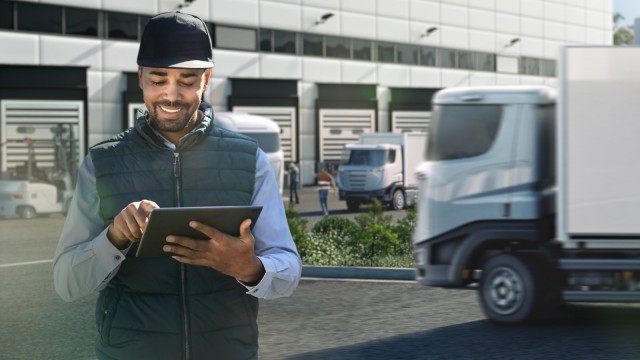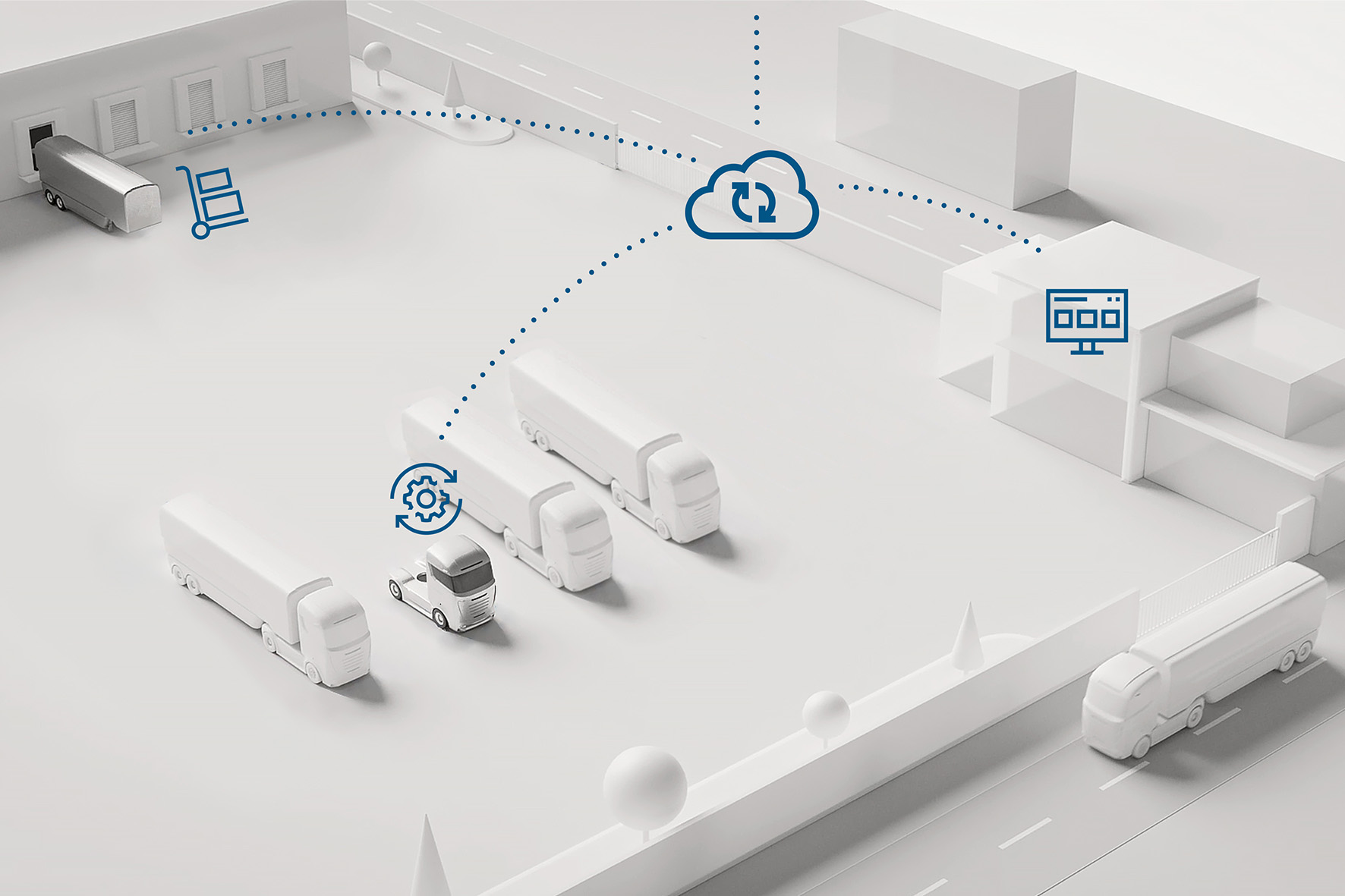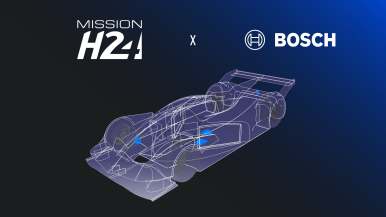Stuttgart, Germany – Bosch and U.S.-based cloud provider Amazon Web Services (AWS) aim to improve efficiency and sustainability in the transportation and logistics industry. Their plan is to offer logistics companies and freight forwarders across the globe quick and easy access to digital services through a platform powered by AWS. Going forward, they will offer support for topics ranging from capacity utilization of commercial vehicle fleets to monitoring goods flows to order processing – all from a single source. To this end, Bosch and AWS have now entered a strategic collaboration. Bosch will be responsible for developing and operating the logistics platform, the core of which is a marketplace for digital services, while AWS will contribute its comprehensive cloud offering and expertise. The platform will facilitate smooth interaction between a variety of services and data, enabling transportation and logistics companies to benefit much more from the opportunities of digitalization without having to set up their own resource- and cost-intensive IT projects. The marketplace will also be open to all digital logistics services providers. Industry and consumers will benefit from the initiative because of greater reliability and transparency in goods and parcel delivery, for example. The companies plan to present a preliminary version of the logistics platform at Hannover Messe, with the launch for Europe, India, and the U.S. set for late 2022.
Mobility is the largest Bosch Group business sector. According to preliminary figures, it generated sales of 55.9 billion euros in 2024, and thus contributed around 62 percent of total sales. This makes the Bosch Group one of the leading mobility suppliers. Bosch Mobility pursues a vision of mobility that is safe, sustainable, and exciting. For its customers, the outcome is integrated mobility solutions. The business sector’s main areas of activity are electrification, software and services, semiconductors and sensors, vehicle computers, advanced driver assistance systems, systems for vehicle dynamics control, repair-shop concepts, as well as technology and services for the automotive aftermarket. Bosch is synonymous with important automotive innovations, such as electronic engine management, the ESP anti-skid system, and common-rail diesel technology.
The Bosch Group is a leading global supplier of technology and services. It employs roughly 417,900 associates worldwide (as of December 31, 2024). According to preliminary figures, the company generated sales of 90.5 billion euros in 2024. Its operations are divided into four business sectors: Mobility, Industrial Technology, Consumer Goods, and Energy and Building Technology. With its business activities, the company aims to use technology to help shape universal trends such as automation, electrification, digitalization, connectivity, and an orientation to sustainability. In this context, Bosch’s broad diversification across regions and industries strengthens its innovativeness and robustness. Bosch uses its proven expertise in sensor technology, software, and services to offer customers cross-domain solutions from a single source. It also applies its expertise in connectivity and artificial intelligence in order to develop and manufacture user-friendly, sustainable products. With technology that is “Invented for life,” Bosch wants to help improve quality of life and conserve natural resources. The Bosch Group comprises Robert Bosch GmbH and its roughly 470 subsidiary and regional companies in over 60 countries. Including sales and service partners, Bosch’s global manufacturing, engineering, and sales network covers nearly every country in the world. Bosch’s innovative strength is key to the company’s further development. At 136 locations across the globe, Bosch employs some 86,900 associates in research and development, of which nearly 48,000 are software engineers.
Additional information is available online at www.bosch.com, www.iot.bosch.com, www.bosch-press.com.








